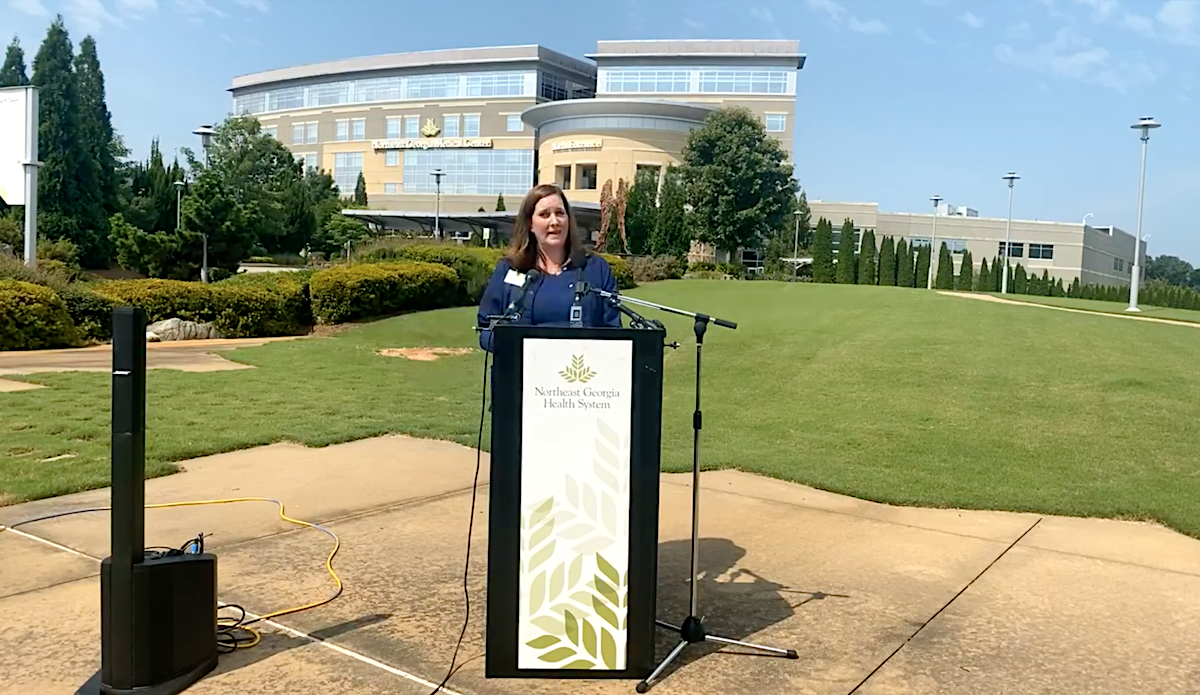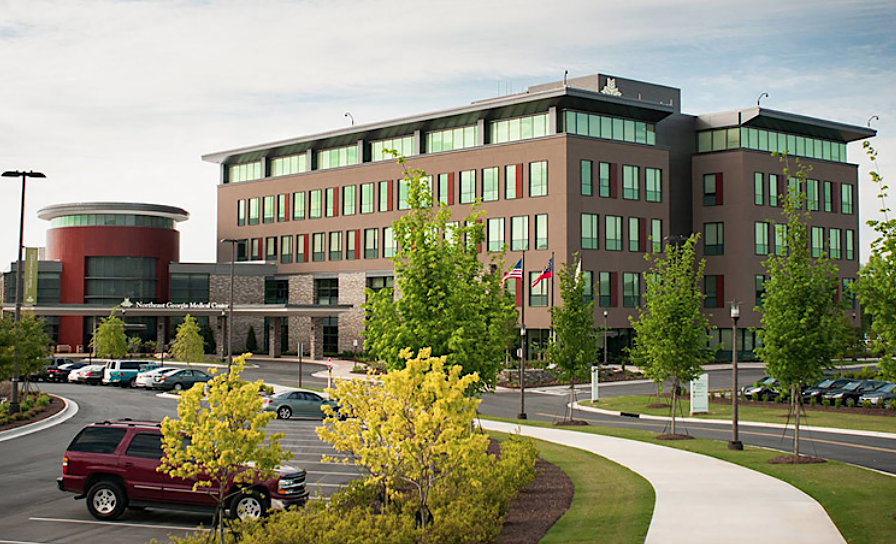
GAINESVILLE — Northeast Georgia Health System is expanding the critical care capacity at its two main hospitals. The health system plans to add 20 more ICU beds in Gainesville and Braselton to meet the long-term needs of the region.
The decision to make critical care more accessible to patients north of Atlanta developed from the pressures COVID-19 has placed on the regional health system.

“While the pandemic is far from over, we know we will increase the number of critical care beds across our hospital system,” says Dr. Larry Dudas, Northeast Georgia Medical Center’s medical director of Critical Care. “That’s what our community needs long term, regardless of COVID, as the population continues to grow. We need to grow to anticipate and meet the future need.”
Before the pandemic, Northeast Georgia Medical Center operated 67 critical care beds in Gainesville and 18 in Braselton. Those numbers climbed to 150 in Gainesville and 44 in Braselton at the peak of the pandemic back in January. To meet those rising demands, NGMC converted existing space to provide critical care, opened new critical care units, and added critical care physicians and staff.

“Our team has been amazingly flexible, and we’ve received tremendous support from the state that allows us to meet the needs as they continue to ebb and flow,” says Elizabeth Larkins, a registered nurse and NGMC’s executive director of Medical Nursing. “We’re still adjusting the number of critical care beds each day based on demand and the resources we have available. It’s stressful on everyone involved, especially given the national nursing shortage, but we have to find ways to continually adapt to meet the challenge our community faces.”
When the pandemic eventually reaches its end, NGMC anticipates operating at least 81 critical care beds in Gainesville and 24 in Braselton on a regular basis – a nearly 24% increase in critical care capacity from pre-pandemic levels.
More visible changes are also coming to NGMC Gainesville, as the mobile medical unit outside the North Patient Tower will be taken down later this month. The state loaned the unit to NGMC last fall to help the hospital manage increased care demands due to COVID-19.

“We’re very thankful for the help the state provided during a critical period of this pandemic,” says Dr. John Delzell, NGMC’s COVID-19 Incident Commander. “The state requested we return the unit, and timing was right as our number of COVID patients is declining and site prep to build a future patient tower nearby are beginning. We are making other plans to flex our capacity, though, just in case the numbers creep back up.”
Workers are currently renovating space inside the existing North Patient Tower in Gainesville to create a new medical observation unit to handle increased capacity as needed. The 14,000 square-foot space on the ground floor will include 24 observation rooms and support space for staff. The unit is expected to open by the end of the year.

Plans for a future tower, currently expected to open in late 2024, include features that will also aid critical care, like rooms designed to easily convert to negative pressure space and be more adaptable based on the level of care a patient needs.
While health officials may be opening up more space for critical care, the ultimate aim in this pandemic is to not have to use it. Says NGHS President and CEO Carol Burrell, “We continue to encourage people to get vaccinated against COVID-19, so, if they are infected, they are much more likely to avoid hospital care or death.”







